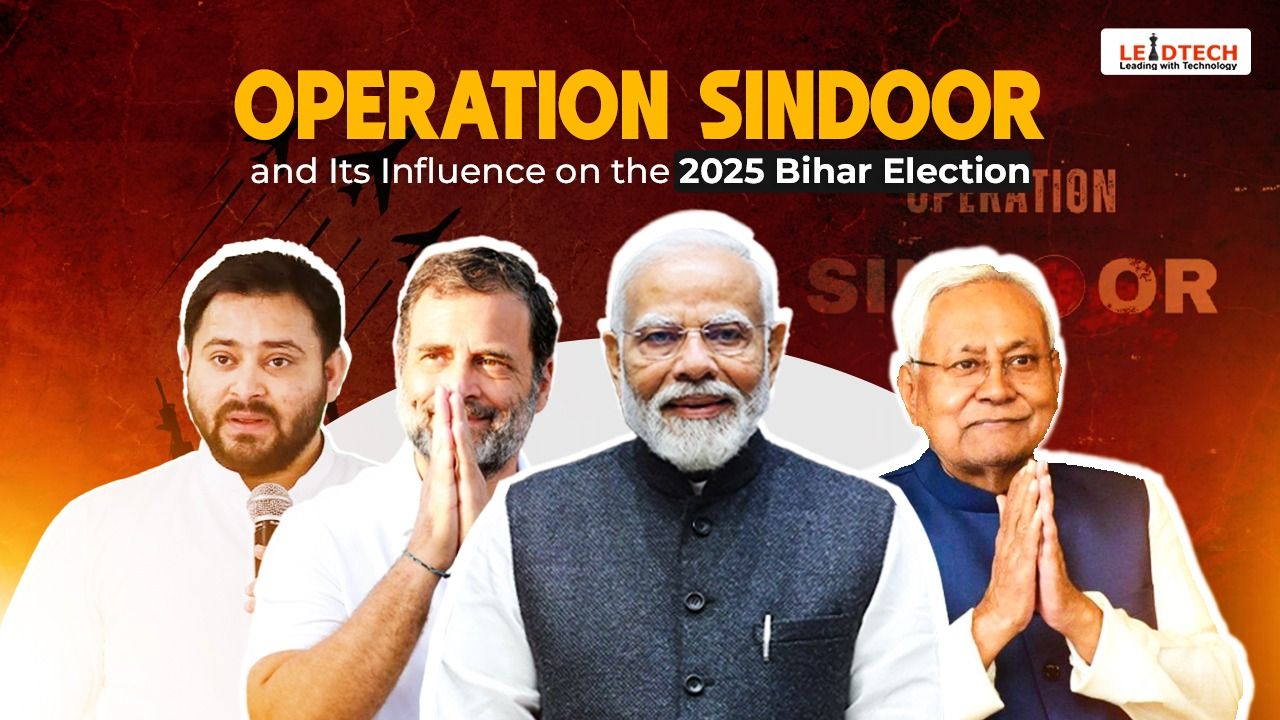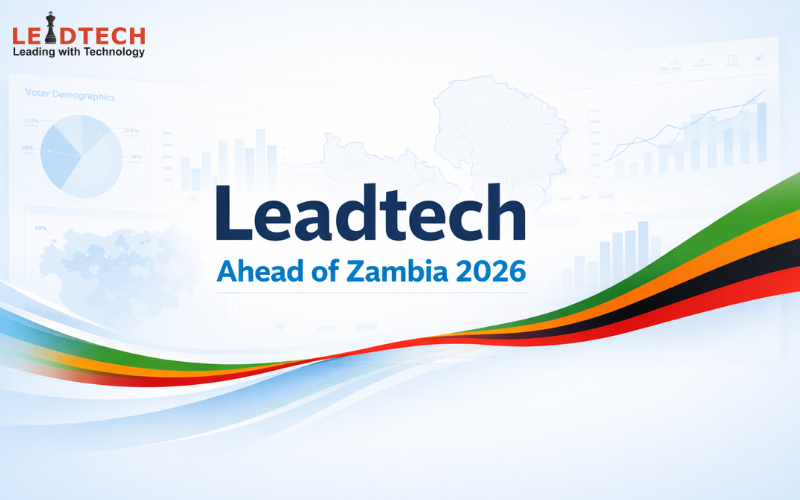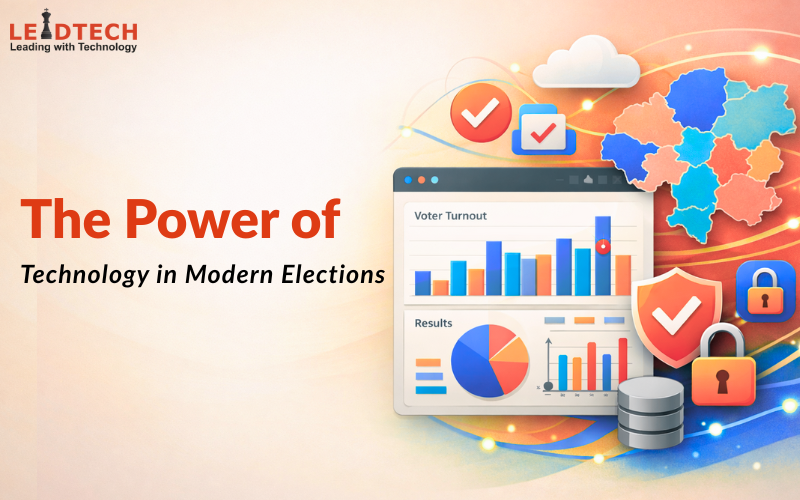The 2025 Bihar Assembly Election has been a pivotal event in Indian politics, characterized by intense competition and complex socio-political dynamics. Among the factors influencing the electoral discourse, Operation Sindoor—a military response to the Pahalgam terror attack—has emerged as a significant point of contention. Promoted by the Bharatiya Janata Party (BJP) as a successful anti-terror operation against Pakistan, it has sparked debates about its politicization and impact on voter sentiment in Bihar. This blog evaluates the influence of Operation Sindoor on the 2025 Bihar election, incorporating statements from key political leaders to provide a comprehensive analysis of its political, social, and electoral implications.
Background of Operation Sindoor
Operation Sindoor was launched in response to a terror attack in Pahalgam, Jammu & Kashmir, prior to the Bihar election cycle in October-November 2025. The operation, described by the BJP as a “100% success,” involved cross-border actions that reportedly compelled Pakistan to seek a ceasefire. The BJP framed the operation as a demonstration of India’s resolve against terrorism, with Prime Minister Narendra Modi and other leaders using the phrase “hot sindoor” (‘मेरी नसों में लहू नहीं गरम सिंदूर दौड़ रहा’: PM Modi, Bikaner rally) to evoke patriotic fervor.
Despite the fact that all parties expressed support for the operation itself, reflecting a rare unity on national security. However, the operation became a political lightning rod. Opposition parties, including the Congress and Rashtriya Janata Dal (RJD), accused the BJP of exploiting Operation Sindoor to gain electoral advantage in Bihar, a state with a history of prioritizing caste and economic issues over national security narratives.
Political Context of the 2025 Bihar Election
Bihar’s electoral landscape is shaped by caste dynamics, regional alliances, and economic challenges. Key players include Chief Minister Nitish Kumar of the Janata Dal (United) (JD(U)), Tejashwi Yadav of the RJD, and Prashant Kishor’s Jan Suraaj Party, a new contender. The BJP, allied with JD(U) in the National Democratic Alliance (NDA), faced coalition tensions, notably with the Nationalist Congress Party (Ajit Pawar faction) opting to contest independently. Against this backdrop, Operation Sindoor entered the campaign as a potential tool for the BJP to shift focus from local issues like unemployment and caste-based reservations to national security.
What Leaders Are Saying
PM Modi, at a Bihar rally, said, “Operation Sindoor avenged Pahalgam,” targeting EBC and Dalit voters. Patra posted on X, “Modi ji’s resolve taught Pakistan a lesson.” Adityanath linked it to “Ahilyabai Holkar’s dharma” for Hindu voters. Yadav backed the operation but criticized politicization: “BJP hides joblessness behind Sindoor.” Banerjee on X said, “Pakistan must face consequences.” Kishor noted, “Soldiers’ bravery is above politics.” The government formed all-party delegations with leaders like Shashi Tharoor (Congress), Kanimozhi Karunanidhi (DMK, Female), Sanjay Jha (JD(U)), and Asaduddin Owaisi (AIMIM, Muslim) to convey a “zero-tolerance against terrorism” message to UN Security Council nations, seeking to hold Pakistan accountable.
How Operation Sindoor Was Politicized
BJP’s Strategy
The BJP integrated Operation Sindoor into its campaign to bolster its nationalist credentials. Modi’s rallies emphasized the operation’s success to project him as a decisive leader, particularly appealing to EBC and Dalit voters. The party reportedly instructed its cadre to promote the operation at the grassroots level, with some X posts alleging the distribution of vermilion in households to symbolize the operation—though such claims remain unverified. The BJP’s narrative aimed to consolidate Hindu voters and counter opposition attacks on governance.
Opposition’s Counter-Narrative
The opposition framed Operation Sindoor as a political ploy. Congress and RJD leaders argued that the BJP was deflecting attention from unemployment, inflation, and demands for a caste census. Some X posts claimed the operation was deliberately timed or paused to maximize electoral impact, though no evidence supports this. The opposition’s strategy was to localize the election narrative, emphasizing issues like job creation and social justice over national security.
Did Operation Sindoor Influence Voter Sentiment?
Arguments in Favor
- Nationalist Appeal: Bihar’s rural and semi-urban voters, sensitive to patriotic rhetoric, may have been swayed by the BJP’s portrayal of Operation Sindoor as a triumph. Modi’s rallies in key regions likely amplified this sentiment.
- Consolidation of Hindu Votes: The cultural symbolism of “sindoor” and references to historical figures like Ahilyabai Holkar, as articulated by Adityanath, may have resonated with Hindu voters, particularly upper castes and EBCs, who are critical to the NDA’s vote base.
- Boost to BJP’s Image: Modi’s projection as a strong leader, reinforced by statements from Patra and others, may have influenced undecided voters in a state where leadership perception matters.
Arguments Against
- Dominance of Local Issues: Bihar’s elections are driven by caste and economic concerns, which often overshadow national security. Yadav’s focus on jobs and caste issues likely diluted the operation’s impact.
- Backlash from Politicization: The opposition’s accusations, echoed by Gandhi and Yadav, may have alienated voters who viewed the BJP’s campaign as exploitative. X posts criticizing the BJP for “mocking martyred soldiers” suggest a segment of public discontent.
- Coalition Tensions: The NDA’s internal challenges, including the NCP (AP)’s independent run and Nitish Kumar’s reported unease with the BJP’s nationalist push, may have limited the operation’s electoral benefits.
Challenges in Assessing Impact
- Lack of Polling Data: No exit polls link Operation Sindoor to voter preferences.
- Mixed Narratives: Nationalist agendas competed with local issues.
- Unverified Claims: Allegations like vermilion distribution or the operation’s timing lack
credible evidence, complicating analysis.
Conclusion
Operation Sindoor significantly shaped the narrative of the 2025 Bihar election, with the BJP leveraging it to reinforce its nationalist image, as evident in statements from Modi, Patra, and Adityanath. However, the opposition, led by Yadav and Gandhi, countered by framing it as a distraction from Bihar’s core issues, potentially limiting its electoral impact. While the operation may have resonated with voters prioritizing national security, Bihar’s caste-driven politics and economic concerns likely took precedence. The politicization of Operation Sindoor risked backlash, as reflected in public and opposition criticism. As results emerge, the operation’s role will remain a subject of debate—whether it was a decisive electoral factor or a secondary issue in Bihar’s complex political landscape.






